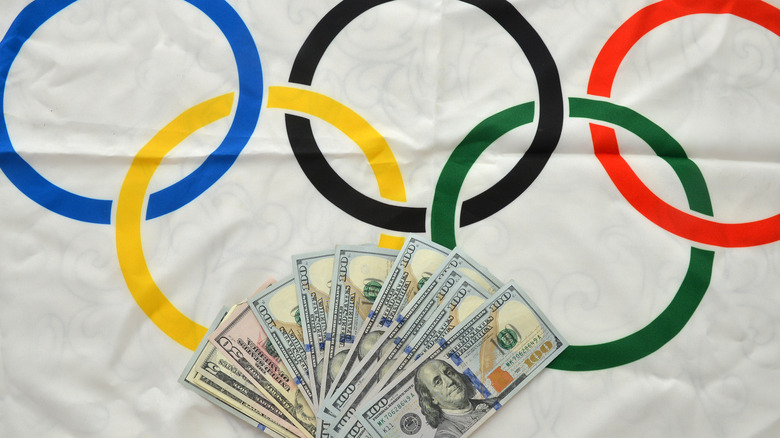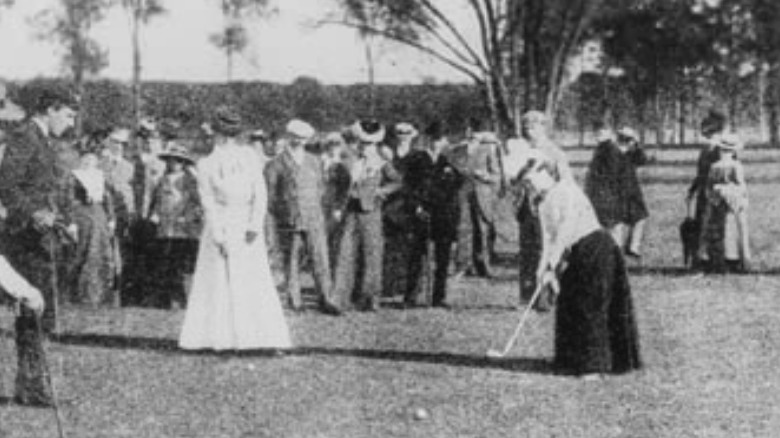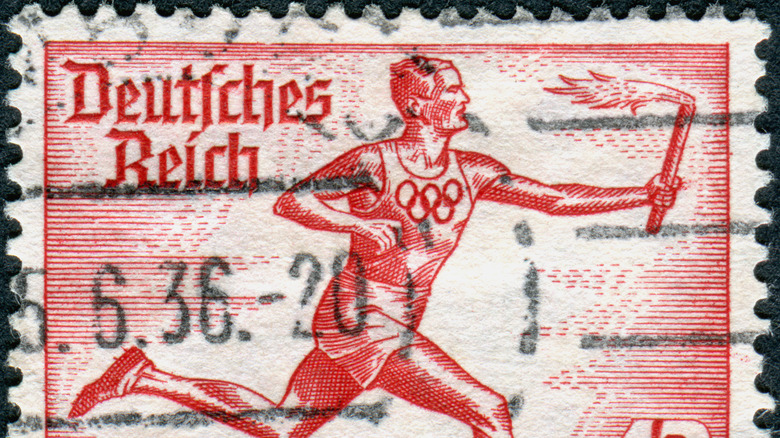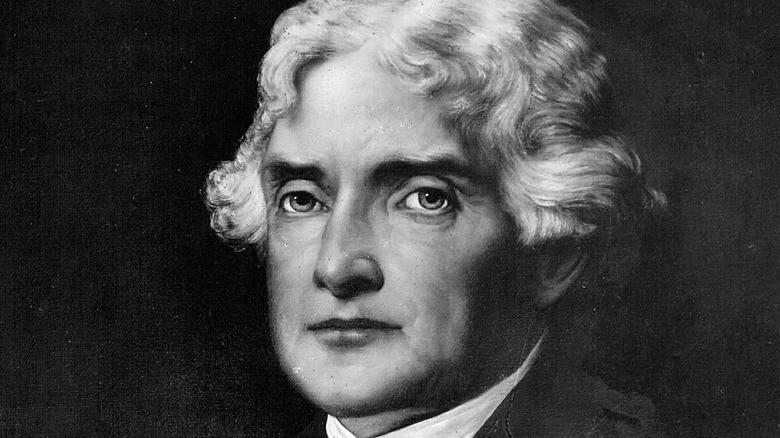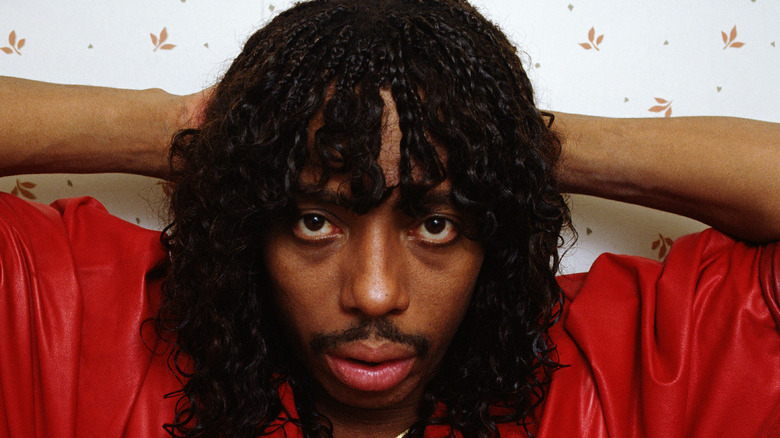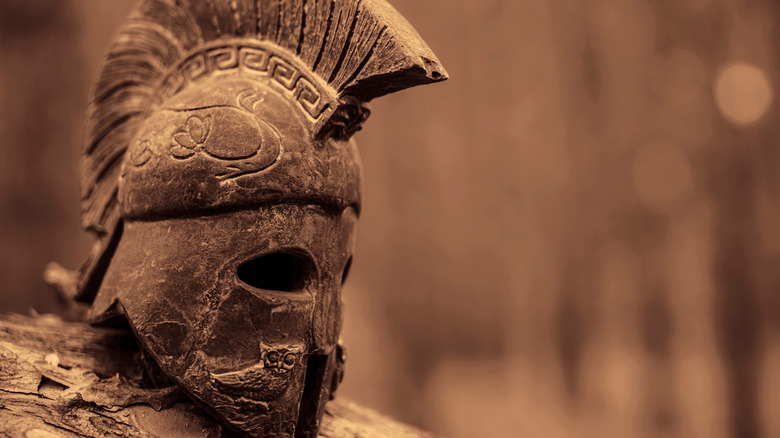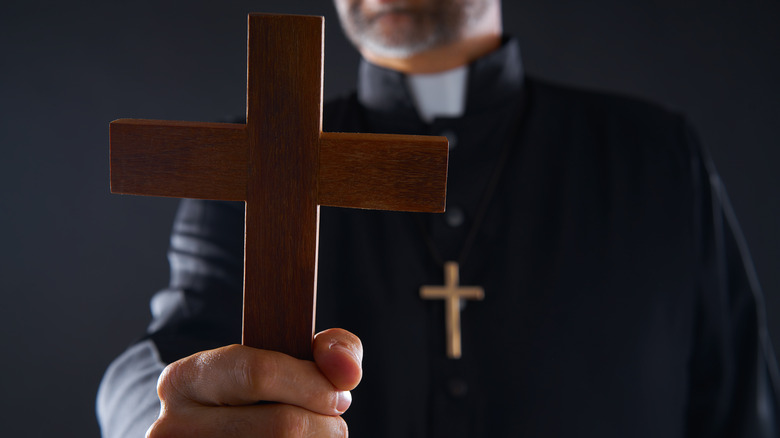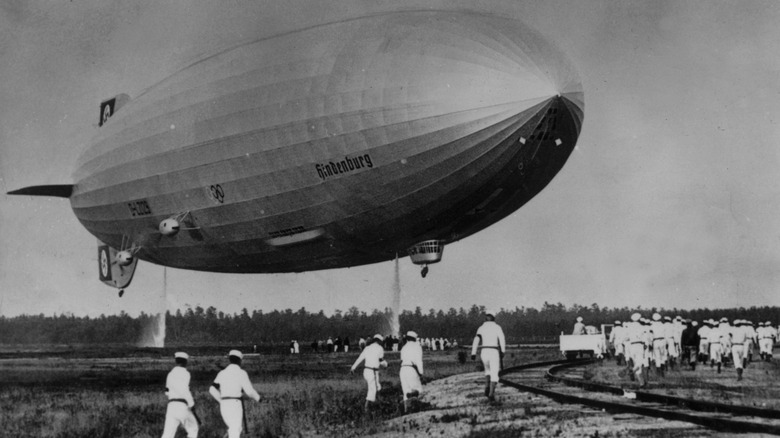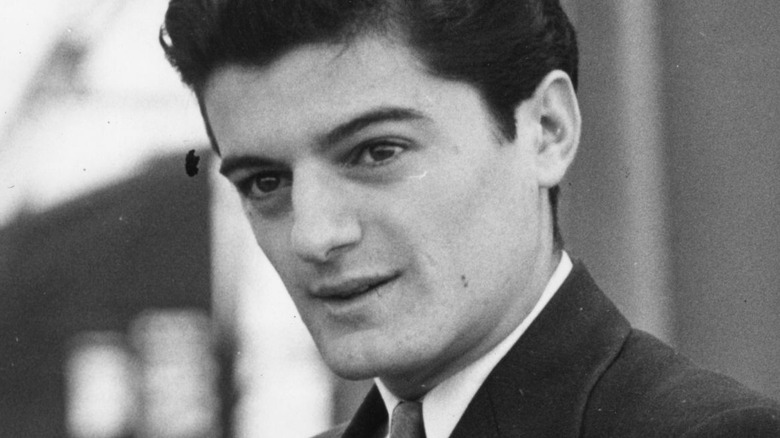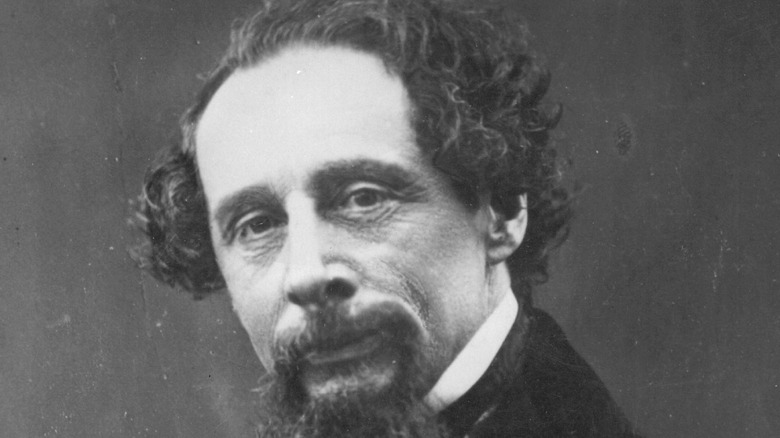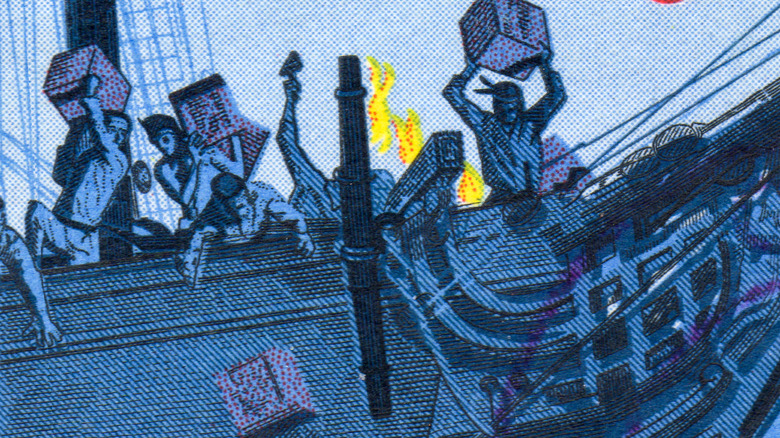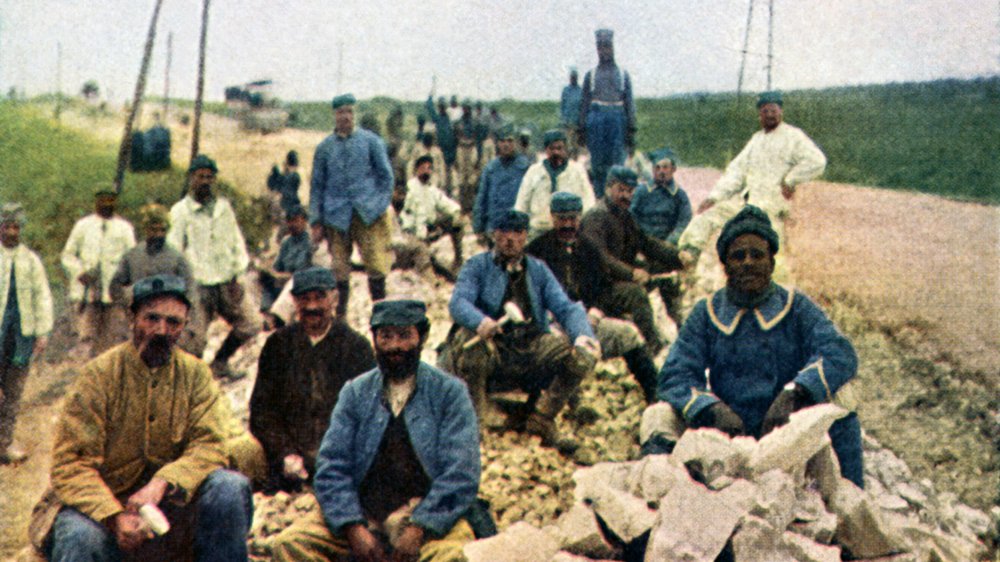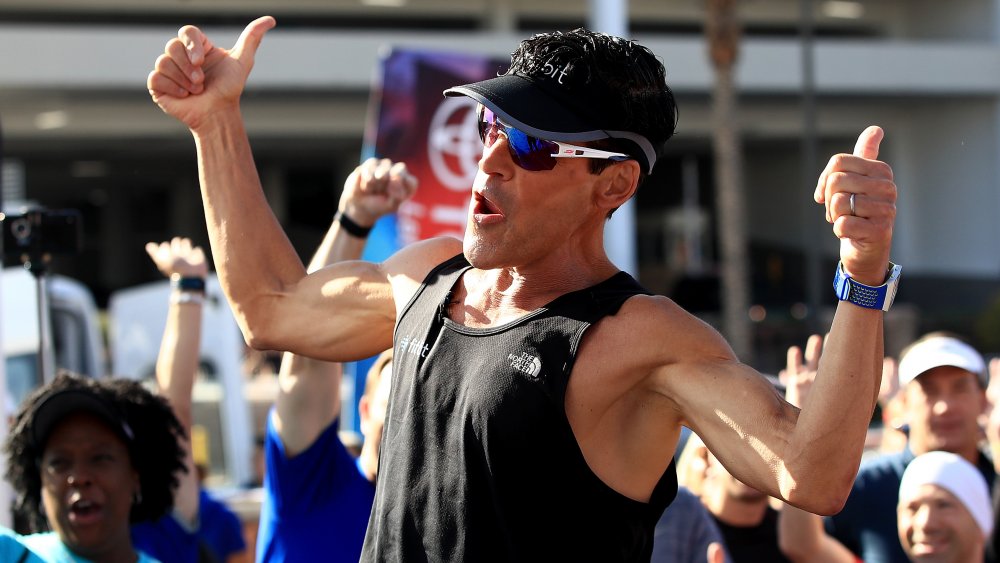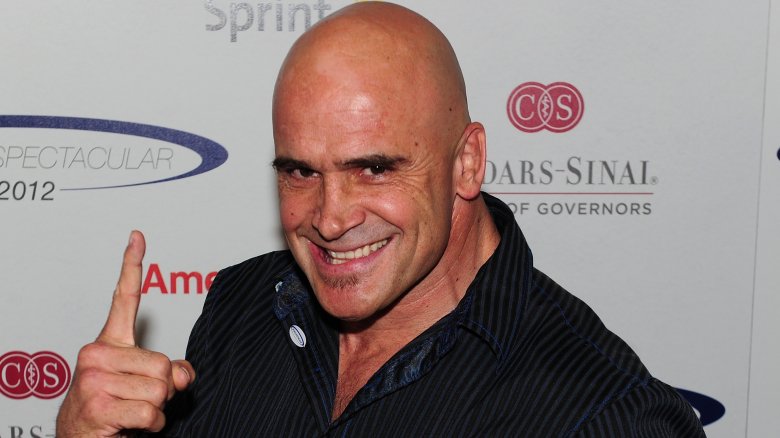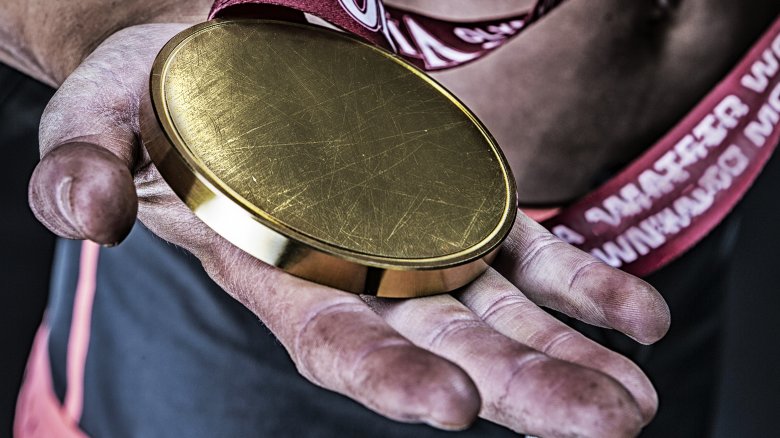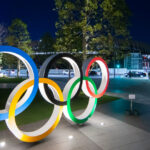
Secrets The Olympics Doesn’t Want You To Know
Ah, the Olympics. A magical time when the entire world sets aside its differences and comes together in a spirit of sportsmanship and human excellence. When the best of the best unite on the playing field to put both their bodies and their minds to the ultimate test. A time when humanity can come together to uphold the ideal of peace — even symbolically. Even just for a moment. It’s beautiful.
Except, we’re about to ruin it for you, because of course we are, because that’s what we do here at Grunge. It turns out that while — yes — there is a certain beauty to Olympic ideals, the actual event itself has a seedy underbelly and a downright embarrassing history. Because any time you bring a bunch of humans together, that’s what happens: a big, chaotic crapshow. But don’t worry, just because the Olympics are generally a mess doesn’t mean you can’t appreciate their ideals and enjoy them at their best. Y’know, maybe.
Here are the absolute worst secrets about the storied international games:
The horrific cost of becoming an Olympic-level athlete
Until the 1970s, the Olympics barred professional athletes from competing entirely, but eventually, those rules were loosened, in part because they prevented all but the independently wealthy from participating. Finally, athletes were free of those cumbersome restrictions and could make money off of their sports however they saw fit — sponsorships, endorsements, training gigs, whatever! The Olympics were finally open to everyone!
Except not really, because it turns out that the cost of training to compete at an elite level is still astronomically high. Professional-level training and equipment — plus travel to events, access to facilities, and general living expenses — can run a mind-boggling $100,000 a year, according to Olympic speed skater Eric Flaim (quoted in U.S. News & World Report). Maybe that’s why the families of championship athletes go broke so often: In 2012, Olympic gymnast Gabby Douglas’s mother filed for bankruptcy and swimmer Ryan Lochte’s parents were facing foreclosure.
Endorsement deals are great and all, but they’re hard to come by — by their very nature, they can only go to the most famous of the most famous. So unless your name is Michael Phelps, you probably won’t be earning a full-time living as a world-class athlete. Good news, though: If you win gold, the U.S. government will pay you a tantalizing $37,500 — which, until a very recent rule change, was considered taxable income (via Crown). Thanks, Uncle Sam!
The Olympic village is never finished on time
But even if you never make a living at the sport, though, you’re still going to enjoy the unforgettable experience of competing on the world’s stage, among other world-class athletes. And — more to the point — you’ll have the once-in-a-lifetime chance to live in the storied Olympic Village, a wonderland of starry-eyed dreamers where anything can happen. Right?
While the Olympic Village — the name given to the housing facilities for athletes at each event — certainly has its perks (free gear from sponsors, free dental care, free all-you-can-eat McDonald’s), it turns out that building an entire city on a limited budget and a tight deadline isn’t as easy as it sounds. According to Cosmopolitan, Olympic Villages are routinely plagued by the exact sort of problems you’d expect, like toilets that won’t flush, flooding, and the tell-tale smell of natural gas leaks.
Cosmo reports that, at the 2016 games in Rio de Janeiro, the Australian team was barred from moving into the Village after the toilets in their building failed a “stress test,” flooding the stairwells and shorting out the lights; after they were allowed to move in, a fire broke out in the basement, forcing them to evacuate (via CNN). While they were out, someone went through their rooms and robbed them — not that it’s at all clear how they evacuated in the first place, since the fire alarm was never even connected. But hey! Free McDonald’s, right?
The Olympics are a festering pit of disease
You’ll recall, of course, that the 2020 Tokyo Olympics were postponed an entire year due to the outbreak of COVID-19 — only to have the now-2021 Tokyo Olympics become a spectator-free event, as a last-ditch effort to prevent a second global breakout of the virus. But even in the years when there isn’t a global pandemic of an incurable disease, the Olympics tend to do exactly what you’d expect from an enormous gathering of people from all over the world: spread all sorts of contagions far and wide.
The 2002 Salt Lake City Winter Olympics, for example, resulted in a horrific influenza epidemic, according to Scientific American. Eight years later, at Vancouver, measles swept through not only the Olympics themselves, but all of British Columbia, killing at least one child (via Canada Communicable Disease Report). Add to that, the locker rooms in general tend to be cesspits of MRSA and intense exercise tends to increase susceptibility to contagious disease, and the Olympics seem more like a weapon of biological warfare than an athletic event.
And those hundreds of thousands of Olympic-sized condoms that get shipped to the Village every year? A lot of publications (like ESPN) want to turn them into a sexy secret, but it’s clear that their main purpose is to prevent STIs from killing the entire world.
The 1900 Olympics were an absolute disaster
The International Olympic Committee likes to pretend that the Games are an unbroken chain of excellence, dating all the way back to 1896. If you look into their history, though, it becomes quite clear that they haven’t always been the prestigious global event they are today.
It’s hard to say exactly where the 1900 Paris games went wrong, but it’s clear someone was asleep at the wheel. The 1900 games limped along for almost six months and featured everything from motorcycling to a pigeon race. While the diversity of events might sound nice, rampant scheduling conflicts led to athletes constantly missing their events — if they knew about them at all.
The 1900 games coincided with a World’s Fair Paris was hosting, so apparently, someone just shrugged and said, “People will come. They might as well play some games while they’re here, right?” Because no one bothered to promote the games as “The Olympics,” the vast majority of the athletes were locals from France. And all that is to say nothing of the thrown-together facilities, which resulted in track events being run on grass and discuses being thrown into tree branches. Oh, and they sold exactly one spectator ticket to the croquet event (via Thought Co.).
Oh, well. At least some athletes still got to bring home gold, right? Nope. Gold, silver, and bronze medals weren’t introduced till the 1904 Olympics (via Olympics.com). And because of the lack of promotion, most athletes didn’t even realize they’d competed in “The Olympics” until years later.
Know who else liked the torch relay? HITLER
Okay, the Olympics are, and always have been, a mess. But at least something about them is pure, right? The spirit of bringing the whole world together in unity, as symbolized by the torch relay? Except, the torch relay is actually Nazi propaganda. Because, what isn’t?
In 1936, Berlin was slated to host the 11th Olympic Games, and Adolf Hitler realized they would make for a great excuse to disseminate his ideas. Accordingly, he seized onto the idea of the burning torch — which had been employed at both the ancient and modern Olympic Games — and thought he’d use it to physically connect modern Germany to the prestige of ancient Greece. The result was the torch relay, which ran from Athens to Berlin — ironically almost the exact same route Hitler would later take when he invaded the Balkans, only in reverse (via Athlon Sports). The crowds that gathered to watch the torch run by were encouraged to yell “Heil Hitler!” and the whole thing was filmed by “Triumph of the Will” director Leni Riefenstahl for propaganda purposes (via USA Today).
It’s hard to say if the torch relay would have continued at the 1940 or 1944 Olympics — they were both canceled because of a war that Hitler guy went on to start — but at the 1948 Olympics, it was decided that the relay should continue, not as a symbol of military power or racial superiority, but of global peace and unity. Which, take that, Hitler.

The Transformation Of Twitter From 15 Years Ago To Today

Sad Details Revealed In Tiger King's Erik Cowie's Autopsy Report
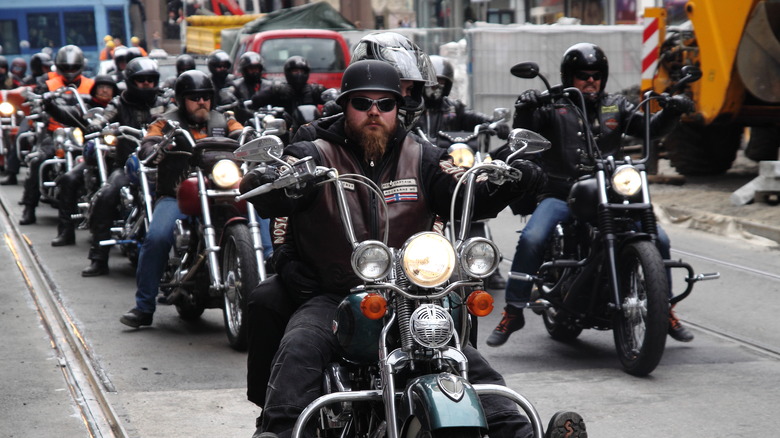
The Truth About The Pagans Outlaw Motorcycle Gang's Secret Drug Ring
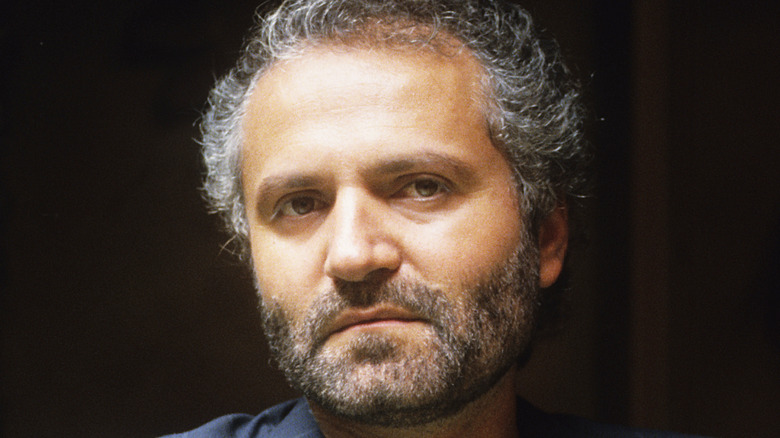
Gianni Versace: The Tragic Real-Life Story
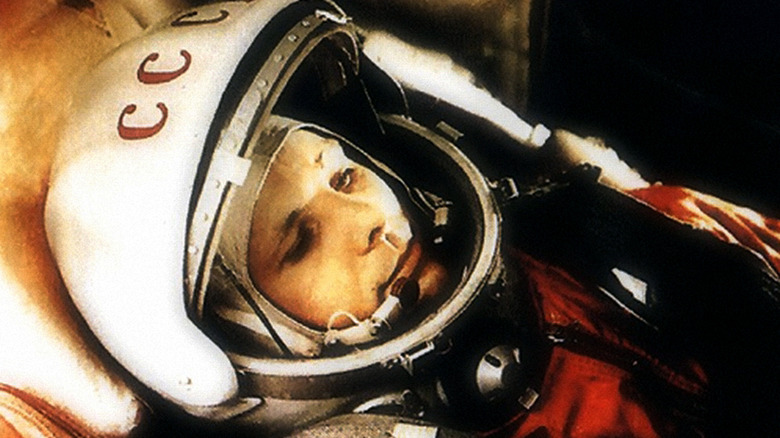
What Would've Happened If The Soviet Union Had Won The Space Race?
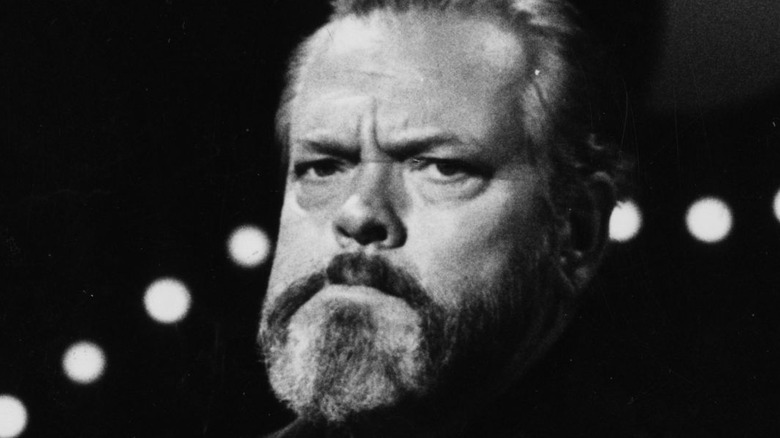
Why Citizen Kane Was Such A Failure When It Was First Released
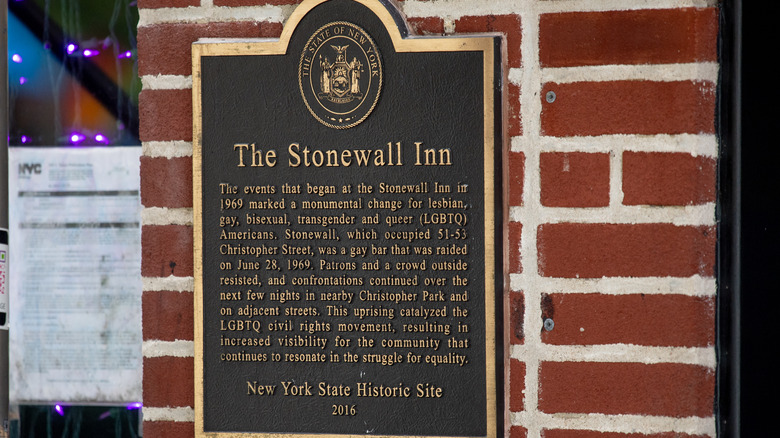
What Happened To The Stonewall Inn?

What Migos Really Mean By Their Song 'Straightenin'

Here's How Much Zion Williamson Is Really Worth

NFL Stars Who Switched Teams This Offseason
